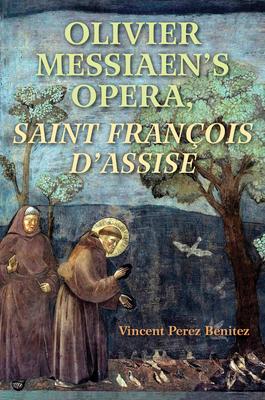In this comprehensive study of Olivier Messiaen's magnum opus, Saint Franois d'Assise, Vincent Perez Benitez examines the opera from both theological and musical-analytical perspectives to ask how Messiaen expresses his Catholic theology through his work. Benitez combines a close reading of the opera score with accounts from Messiaen's associates, studies of Messiaen's birdsong notebooks and other primary documents, and an examination of the religious, musical, poetic, and visual arts literature with which the composer was familiar to explore how the opera's harmonic language and sound-color relationships motivate its musical meaning and expression. Through his analysis of these diverse sources and comparisons of Saint Franois d'Assise with other works such as Berg's Wozzeck and Wagner's Parsifal, Benitez places Messiaen's compositional practice within larger musical perspectives and historical contexts.

Olivier Messiaen's Opera, Saint Francois d'Assise
In this comprehensive study of Olivier Messiaen's magnum opus, Saint Franois d'Assise, Vincent Perez Benitez examines the opera from both theological and musical-analytical perspectives to ask how Messiaen expresses his Catholic theology through his work. Benitez combines a close reading of the opera score with accounts from Messiaen's associates, studies of Messiaen's birdsong notebooks and other primary documents, and an examination of the religious, musical, poetic, and visual arts literature with which the composer was familiar to explore how the opera's harmonic language and sound-color relationships motivate its musical meaning and expression. Through his analysis of these diverse sources and comparisons of Saint Franois d'Assise with other works such as Berg's Wozzeck and Wagner's Parsifal, Benitez places Messiaen's compositional practice within larger musical perspectives and historical contexts.